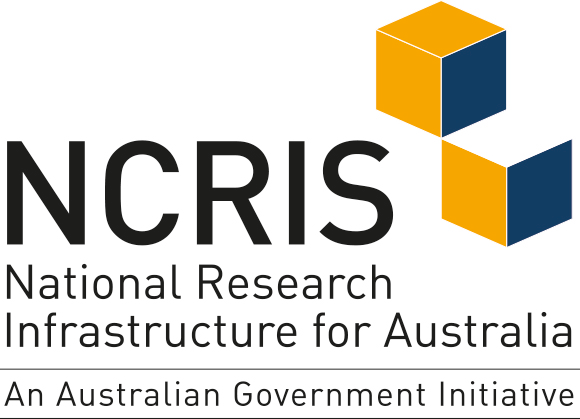-
How is AgReFed different from other data discovery tools?
AgReFed is differentiated from other data initiatives by its primary focus on agriculture, federated system architecture, diverse sources of data and its social architecture. This ensures the sustainability of AgReFed, as each Data Provider Community is supported to make their data FAIR in a way that suits their needs as well as those of the community, rather than being asked to conform to a single solution.
-
What are the benefits of AgReFed?
In the era of big data, finding and extracting meaning from agricultural data for decision making, discoveries and innovation is a challenge. One survey estimates that up to 80 percent of PhD and other researchers’ time in projects is spent dealing with discovering and reusing multiple data sources (Press, 2016).
AgReFed enables participation and data discovery through improving the sharing and reuse of agricultural data which has the following benefits:
- Adopting good data stewardship, including making data findable, accessible, and re-usable by both humans and machines, avoids wasting time and money.
- New, innovative findings become possible when users can search and combine their datasets with other datasets by parameters of interest.
- Deep, integrative data-driven research for discovery and policy insights can be achieved when data can be searched and combined across sectors.
- Participation in agricultural data sharing, reuse and discovery can span beyond the traditional academic research setting, including across public and private sectors.
-
What constitutes agricultural data and who can participate in AgReFed?
Agriculture data covers a wide variety of data types (such as field, laboratory, and sensor data), generated from production or research relevant to agriculture and can be collected and used by farmers, agronomists, researchers, and industry. Participants can include individuals, organisations or communities with the vision of improving the sharing and reuse of agricultural data.
-
Can our organisation participate in AgReFed but retain control over data access?
Yes. Many research projects, facilities and organisations have existing policies about data reuse and access. Within AgReFed, the ‘A’ in FAIR stands for ‘Accessible under well-defined conditions.’
The use of standard "open" licences (e.g., Creative Commons licences) is encouraged for maximal data reuse of agricultural data through AgReFed, however other well-defined licences are permissible and may be better suited in some cases.
A rich description in a machine-readable metadata record ensures that the data can be discovered, relevance to potential users evaluated, and that the conditions under which the data may be accessed, reused, and cited are clear.
-
What is meant by participation in the AgReFed community?
The Agricultural Research Federation is made up of providers (people and organisations) who contribute data and services to AgReFed. These providers can participate in the Federation, for example as a member of the Federation Council and/or the Technical Committee (see the Data Stewardship Framework for details). These are the bodies that set the policies for AgReFed, including data standards, technical architecture, and governance.
See Get Involved.
-
I already submit my data to a repository. Would I need to do it again for AgReFed?
The AgReFed data ecosystem is not a ‘repository’ for data - you do not submit your data, and it does not hold your data. Rather, datasets or data services are made discoverable, accessible, and visualised via the AgReFed portal.
For example, data can be made accessible via AgReFed from your domain-specific, organisation or institutional database or repository via an API, and your metadata records made discoverable in AgReFed if already in a registry such as Research Data Australia or Government data portal.
-
Our organisation has its own data management practices. Could this work with AgReFed?
Yes. Data made available through AgReFed will be required to meet community standards for AgReFed FAIR and Trusted repositories to maximise data discovery and reuse. Yet the needs of agriculture data provider communities and their data management practices are diverse, and this is recognised.
AgReFed does not enforce one data management and delivery solution, but works together toward improving the sharing, reuse and value adding to providers’ agricultural data as part of the provider’s usual business.
-
Do I have to conform to a particular data standard for AgReFed?
AgReFed encourgages the use of open-source data exchange standards, metadata standards and widely accepted controlled vocabularies where possible. These help to make agricultural data understandable by both humans and machines and aids seamless exchange and integration of datasets (interoperability, the “I” in FAIR).
AgReFed has adopted a set of minimum standards through a process of community consultations. The journal article "Development and Governance of FAIR Thresholds for a Data Federation" details this process.
Federation University has developed a FAIR assessment tool that helps with checking datasets against the AgReFed minimum standards and provides assistance in improving the level of FAIRness of a dataset.
-
What does machine-readable mean, and do I need to make my data fully machine-readable to participate in AgReFed?
Machine readable data and meta-data is in a format that can be read and processed by a computer. It enables data to be discovered, queried, understood, and actioned by a machine for maximising efficiencies and insights in a data-rich world.
Machine-readable metadata is the first major step towards becoming FAIR, allowing data discovery, access, and reuse through AgReFed.
Whilst making data fully machine-readable can maximise reuse of the data, there can be circumstances where this is deemed not desirable (for example sensitive or embargoed data).
All Content © 2026 Agricultural Research Federation - All Rights Reserved | Privacy Statement | Website by CeRDI

